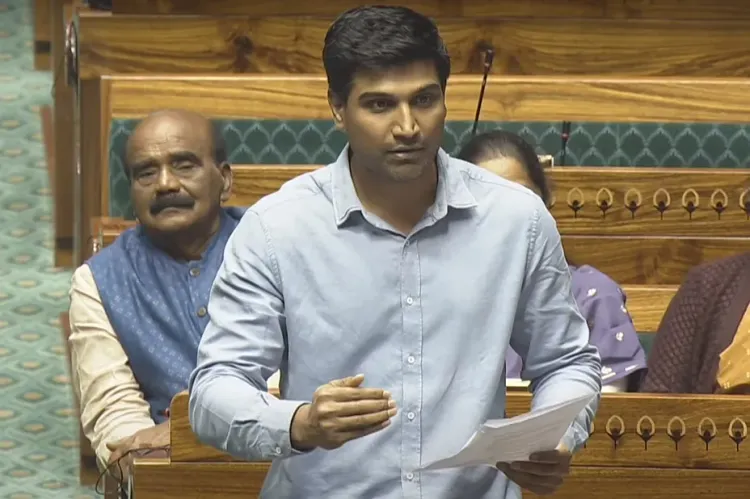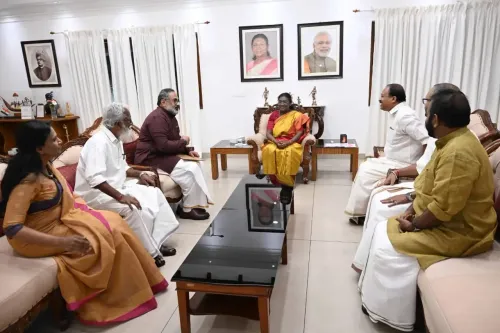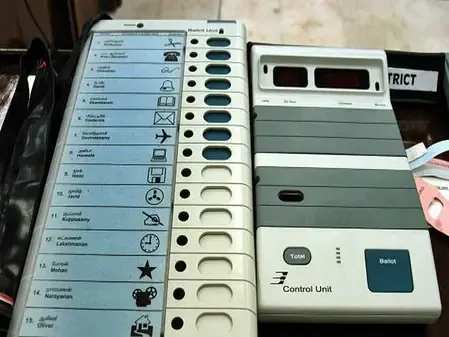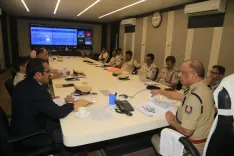How Can TDP Strengthen Electoral Roll Verification?

Synopsis
Key Takeaways
- Annual third-party audits for electoral rolls under CAG.
- Early initiation of Special Intensive Revision (SIR) in Andhra Pradesh.
- Transparent deletion processes based on reasoned orders.
- Use of AI-driven tools for real-time verification.
- Mandatory involvement of Booth Level Agents (BLAs).
Amaravati, July 15 (NationPress) The TDP has proposed enhancing the verification of electoral rolls through annual third-party audits under the Comptroller and Auditor General (CAG) of India, aimed at identifying discrepancies. The party also urged the Election Commission of India (ECI) to initiate the Special Intensive Revision (SIR) process in Andhra Pradesh promptly and emphasized that any voter deletion should be based on a well-founded order, proper notification, and an opportunity for feedback.
The TDP called for the implementation of AI-driven tools to detect duplicates, migration, and deceased entries in real time.
As a coalition partner in the BJP-led NDA government at the national level, the TDP made these recommendations to bolster electoral roll management and improve transparency in the electoral process.
TDP Parliamentary Party leader, Lavu Krishna Devarayalu, submitted a letter to Chief Election Commissioner Gyanesh Kumar in Delhi.
Additionally, the TDP urged the ECI to establish a time-sensitive grievance redressal mechanism at both the Block-Level Officer (BLO) and Electoral Registration Officer (ERO) levels to swiftly address wrongful exclusions.
The party suggested standardizing door numbers across the country as a policy initiative to enhance electoral roll verification.
The TDP supported the rectification of duplicate Electoral Photo Identity Card (EPIC) numbers using Aadhaar.
"Accelerate the issuance of unique, non-repeating EPIC numbers nationwide. Implement Aadhaar-based cross-verification with strong data privacy safeguards. Transition from ink-based verification to a biometric verification system," the letter stated.
Political party involvement should mandatorily include Booth Level Agents (BLAs) from all recognized parties throughout the revision process, according to the TDP.
The party recommended pre-publication and mandatory sharing of draft rolls with BLAs to facilitate real-time verification.
Furthermore, the TDP called for district-wise data on voter additions and deletions with explanations to be published on the ECI portal.
"Establish a real-time public dashboard for monitoring voter grievances and their resolutions," the TDP suggested, while requesting statutory timelines and penalties for EROs and DEOs (District Election Officers) for inaction or misconduct.
The TDP urged the electoral body to empower State Election Watch Committees to operate with observer status during roll revision.
The party proposed the rotation of BLOs and EROs to avert local influence or partisan misuse. They also advocated for the appointment of a state-level Ombudsman under the ECI to address unresolved political grievances related to electoral rolls.
Targeted re-enrollment campaigns for migrant workers, tribal groups, the elderly, and homeless individuals were also recommended. The party proposed allowing temporary address declarations with basic documentation to prevent disenfranchisement among mobile populations.
Given that Andhra Pradesh is not scheduled for Assembly elections until 2029, the TDP acknowledges that any forthcoming SIR presents a significant opportunity to ensure that electoral rolls are updated in a fair, inclusive, and transparent manner.
The TDP urged the ECI to commence the process in the state as soon as feasible.
"To bolster voter confidence and administrative preparedness, the SIR process should be conducted with ample lead time, ideally not within six months of any major election. Voters already enrolled in the most recent certified electoral roll should not need to re-establish their eligibility unless specific and verifiable reasons are documented," the TDP stated.
The burden of proof rests with the ERO or objector, not the voter, particularly when the name is present in the official roll. The purpose of the SIR must be clearly defined and confined to electoral roll corrections and inclusions, the TDP emphasized.
"It should be made clear that this exercise is unrelated to citizenship verification, and any field instructions must reflect this distinction," it added.
Highlighting that Andhra Pradesh experiences significant seasonal migration, especially from rural and coastal areas, the party noted that SIRs should deploy mobile BLO units and accept temporary address declarations to prevent the exclusion of migrant workers and displaced families.
"We urge the Commission to provide explicit procedural guidance stating that the deletion of any voter must be based on a reasoned order, proper notice, and an opportunity for response. If voters are unable to provide documents during the visit, stage-wise verification should be allowed instead of immediate exclusion," it concluded.









